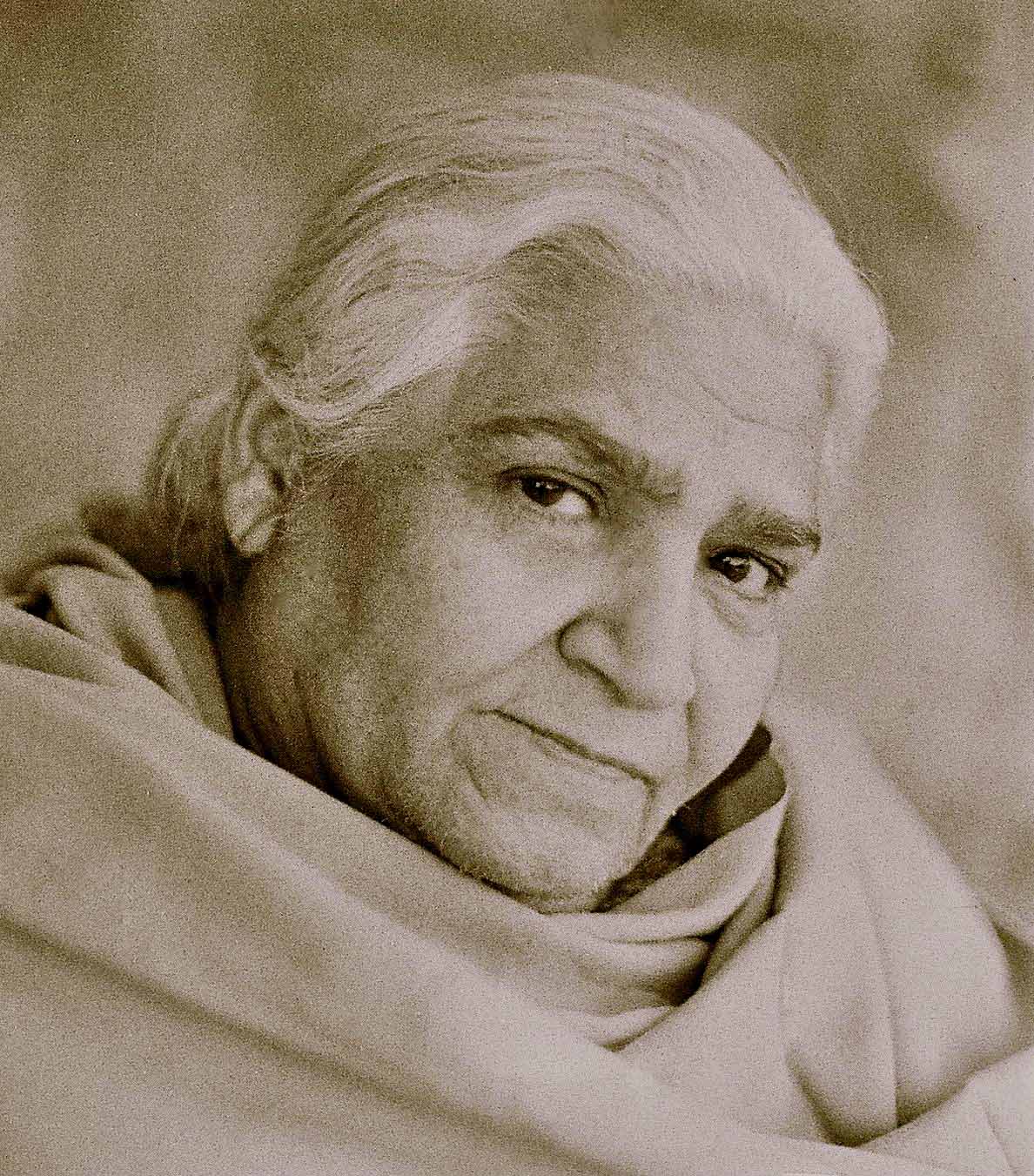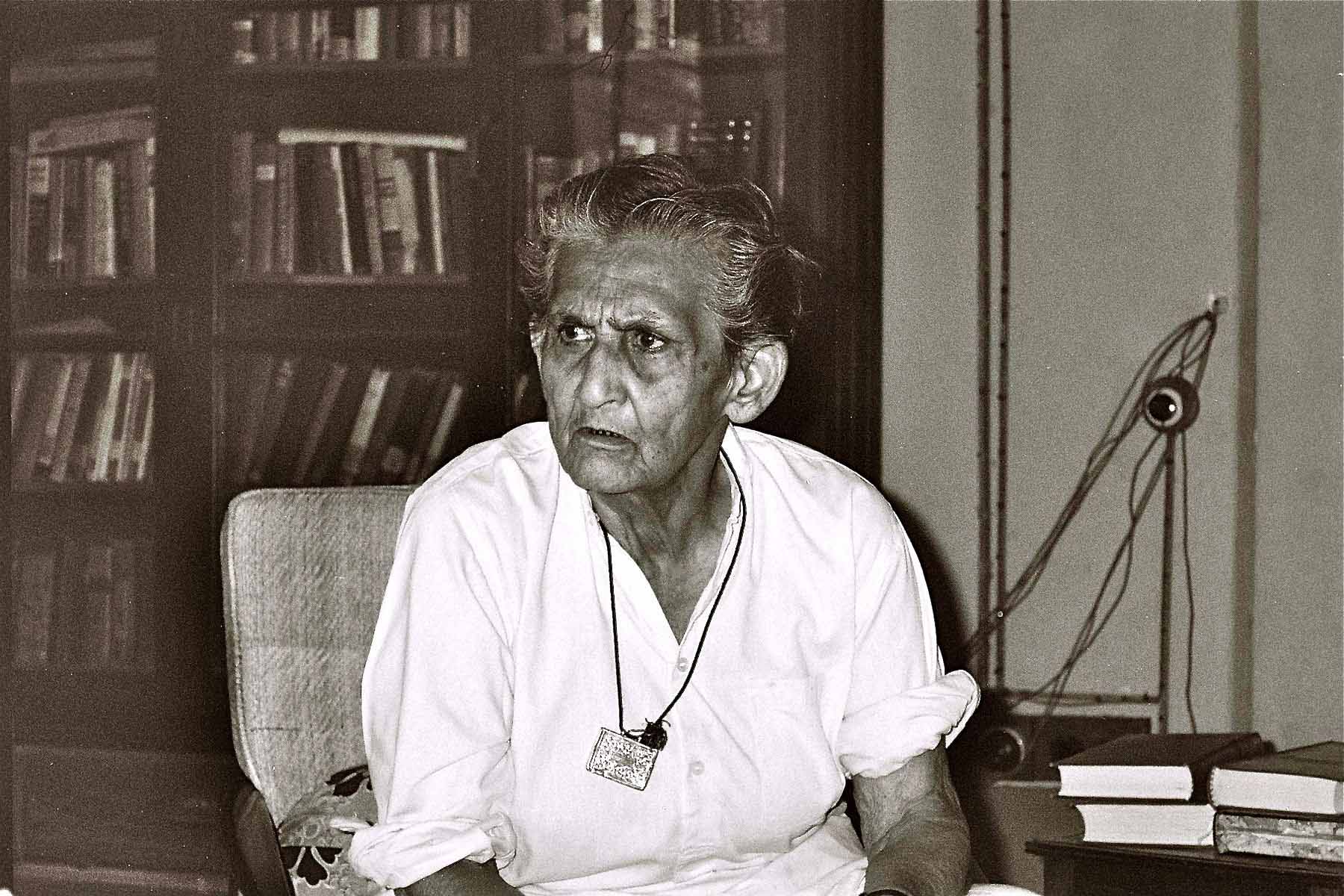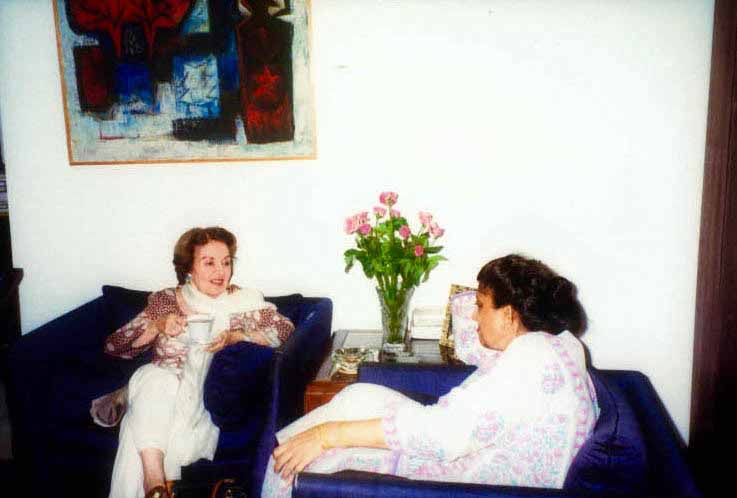Sisters
Although the Muslims of Sindh were members of the Bombay Government and had had Muslim premiers in Sindh since the separation from Bombay in 1937, they had shown no interest in establishing institutions of higher learning in the province. Sayyid Ghulam Mustafa Shah, the education minister in the PPP government, wrote in 1946, ‘... 92% of the Muslim population of Sind is illiterate whereas there is practically no illiteracy among the Hindus (p. 8)…. They do not want the spread of literacy. They fear the spread of education (p. 36)’.
The non-Muslims constituted 28.48% of the population of Sindh, but their ratio in services was very high. The figures from the Public Works Department presented in the Sindh Legislative Assembly on 25 March 1947 showed that non-Muslims had 64 to 98% of jobs in various categories. And the list of successful Sindh candidates at various engineering examinations of the University of Bombay published on 11 May 1935, showed 121 non-Muslims and only 9 Muslims. Further most of the educated Muslims and those holding government jobs were non-Sindhi Muslims from neighbouring provinces.
Karachi’s selection as the federal capital and the migration of Hindus from Sindh at the time of partition created unprecedented economic openings for Muhajirs. Therefore the Sindhi nationalists contend that discrimination was practised against Sindhis from day one. In fact if a decision had been taken in 1947 that all jobs in the newly set up government of Pakistan would be given to no one but Sindhi Muslims, the Sindhi Muslim candidates could not even have filled all posts of typists in the federal secretariat. (Memon, Dawn, 8 Nov '95).
The U. P. Muslim League Assembly Party, of which Mr. ZH Lari was operating head, and a member of the executive and court of Aligarh Muslim University, persuaded ABA Haleem, a professor and pro-Vice Chancellor of Aligarh University, who had been elected Muslim League member of the Assembly, to establish Sindh University. ABA Halim established Sindh University on 3rd April 1947 and became its first vice chancellor. After the separation of Karachi from Sindh, Sindh University was moved to Hyderabad in April 1951, and ABA Halim established the University of Karachi, becoming its first vice chancellor.
Similarly, Prime Minister Liaquat Ali Khan requested a German educated Muslim scientist, Dr. Salimuzzaman Siddiqui, who worked in the Indian Council for Scientific & Industrial Research in Delhi, to come to Pakistan, and made him science advisor to the government, and Director of the Pakistan Department of Research, to promote science and scientific research in Pakistan. This department was reformulated in 1953 as the Pakistan Council of Scientific and Industrial Research (PCSIR).
Within five years of independence, the government expenditure on education was doubled; compulsory primary education was introduced in 33 talukas of Sindh, and the study of both Sindhi and Urdu languages was made compulsory in the upper primary level. This was apart from the philanthropic and commercial investment that the Muhajirs made into education.
Among women, Begum Amina Majeed Malik was a leading educationist who founded PECHS Girls School and PECHS Girls College, with the earnings of her book business and help from friends. She was always on the lookout for educated Pakistanis who were returning from abroad, to put them to some use in her school. Therfore she asked me to lecture in political science and asked Mrs. Yasmeen Lari to improve school and college buildings. Apart from education she had a great interest in the fine arts and music, which were subjects that were taught in her institutions. And well known artists were all the time invited to lecture, exhibit and perform at her school and college. Further she was founder chairman of Idara-i-Yadgar-i-Ghalib. Begum Majeed Malik had Faiz Ahmed Faiz appointed as Principal of Abdullah Haroon College, and made Mrs. Alys Faiz head of the nursery section of her school. We met Mrs. Faiz and became friends when we took our daughter for admission. I here quote from a poem, which Faiz wrote to Alys from jail;
‘Agar chay Tang hain auqat sakht hain Alam
Tumhari yad say shirin hai talkhi-e-Ayyam
Salam likhta hai shair tumharay husn kay nam’
When Mr. Bhutto nationalised her college and the school was saved with great difficulty, an unhappy Begum Majeed Malik gave charge of the school to her daughter, and her book business to her son. This made her children effectively in control and able to object to her smoking. Therefore when they came back home from work, she would arrive at my house before I returned from my office, and would be in my study, smoking away. Those were the days when every office in the financial district of MacLeod Road offered tea or coffee and cigarettes to visitors. My secretary was good at making coffee, which attracted a number of persons to my office. I was, like Begum Majeed Malik, a chain smoker. Therefore we got on very well while my wife was helping the children with their homework. This went on until her children began to wonder about the absence of their mother from home in the evenings, and discovered the reason through the driver, who bought her cigarettes. They decided to put a stop to it, but by this time Begum Majeed Malik was so used to me that by the time evening came, she asked her daughter to persuade me to join her at her house for dinner. This was the job of her daughter, Nageen, who phoned me every evening and made me come to be with her mother. My wife did not object because it gave her more time with children. My evening visit had the advantage that Baji, as she was affectionately called, and Nageen could also smoke a few of my cigarettes.
Her father, Ataullah Butt, who had a medical degree from Germany, had established Tibbiya College at Aligarh. He was very popular among the staff and students of the university. Dr. Butt had highly educated and talented daughters, which further added to the interest in the Butt family where writers and poets gathered. Israrul Haq Majaz wrote a poem on an evening spent at the Butt house, and sent it to the daughters through his sister, Safia. I reproduce here some of the verses;
‘Didni tha nazninan-e-Tamuddun ka hujjoom
Bey haqiqat thay nigahon main meh wa meher wa najum
Naz parwardeh hasin, afkar-e gham say bay niaz
Meh jabinan-e haram, quaid-e haram say bay niaz’
The eldest, Amna, had created a record of being at the top of her class. She topped the matriculation examination in Punjab. She topped the BT education degree from Aligarh University, and did MA in Philosophy from Bombay University with distinction. She married Majid Malik, a writer and poet who greeted her with poetry. He was the first accredited Reuters correspondent in India, as well as being the first full native colonel of the British Indian Army, as a press officer who got some of the top poets and writers appointed to the British Army after Germany attacked Russia and the Soviets joined the allies.
She had two younger sisters, Tahira and Nageen. Tahira was married to Shahid Hamid who had studied at Aligarh University. He later joined the Royal Military College, Sandhurst, in England, and served on the Burma front during the Second World War. He was posted as Military Secretary to Field Marshal Sir Claude John Eyre Auchinleck, Commander-in-Chief of the Indian Army, member of the Executive Council of the Governor General of India and ADC-General to the King. After partition AUK, as he was called, served as Supreme Commander of all British forces in India and Pakistan until late 1948. After the World War was over Mrs. Shahid Hamid travelled all over Europe with AUK without visa or passport.
Field Marshal Ayub Khan was educated at the University of Aligarh, where he was involved in fights and was treated by Dr. Butt, who did not report the matter to the authorities, who would have rusticated him. This brought a grateful Ayub close to Dr. Butt and his family. Therefore in Rawalpindi, Field Marshal Ayub often spent his evenings at the house of General Shahid Hamid, whose wife was Dr. Butt’s second daughter, Tahira. As a Lieutenant-Colonel of the Pakistan Army in 1948, Shahid Hamid set up the Inter-Services Intelligence, and in 1951 at the age of 41 became the youngest general in the Pakistan Army. Despite all the qualifications and friendship with the Butt family, Ayub Khan told Begum Tahira Hamid that, “I cannot make your husband chief of the Pakistan Army because he is not a son of the soil”. Major General Hamid took retirement from the army in 1964, and was given an honorary discharge. Begum Shahid Hamid told me with great contempt that one day when she was sitting with the wife of Ayub Khan on her verandah, she saw an army water tanker spraying the lawn with Musa sitting next to the driver directing him. Musa was chosen by Field Marshal Ayub as his successor as chief of the Pakistan Army
Faiz Ahmad Faiz wrote a poem, ‘Mullaqat’ when he was shifted to Jinnah Hospital from Hyderabad Jail, and Tahira came to see him. He sent it to her through Begum Majeed Malik. He wrote another poem in Montgomery Jail and sent it to Tahira, and from this I quote;
‘Gulon main rang bharay bad-e-nau bahar chalay
Chalay bhi aao kay gulshan ka karobar chalay’
Nageen was the youngest of three sisters. She married Anis Ahmed who had qualified for the ICS in the examination held in Delhi in 1933, but did not survive the rigorous physical ICS probation at Oxbridge, and gave up. He greatly admired the last great Muslim philosopher born in Spain, Abū l-Walīd Muhammad bin Ahmad bin Rušd, known as Ibn Rushd (Averroes in Europe), who had rebutted al-Ghazali’s famous treatise, ‘The Incoherance of the Philosophers’ by writing ‘The Incoherance of the Incoherance’. Anis Ahmed therefore added Rushdie to his name and became Anis Ahmad Rushdie, a name that was made famous by his son, Sir Ahmed Salman Rushdie, who wrote ‘The Satanic Verses’ in 1988, which resulted in book burning, riots and death threats to him by Muslims all over the world, including a fatwā requiring his execution by Ayatollah Ruhollah Khomeini, the Supreme Leader of Iran, on 14 February 1989.
By writing, ‘The Satanic Verses’, Rushdie contravened an old Muslim stricture, which says, Ba Khuda diwana Bashu Ba Mohammed Hoshiar’. It means that you can be critical of God, but do not ever be disrespectful of the Prophet Mohammad (PBUH). Hence all the great poets of Urdu have written poetry critical of God but never of the Prophet Mohammad (PBUH). Rushdie’s book is banned in 12 countries, namely, India, Bangladesh, Sudan, South Africa, Sri Lanka, Kenya, Thailand, Tanzania, Indonesia, Singapore, Venezuela, and Pakistan. I read the book because his mother, known as bari Nagin in the family, lent it to me.
I was in the habit of driving Begum Majeed Malik and Dr. Ehsan Rashid to Malir every other month, to spend the day with another great lady, Princess, Abida Sultan Begum whom they called Bia Hazur. The princess, who was once the heiress to the Bhopal throne, a friend of the British royal family, a great socialite who played polo, and took to fencing and flying, now lived simply in Malir off a dusty track. There was no tap water in her house. She used well water, which tasted awful to us, and so did tea or food made with it. Therefore we went to her fully equipped with a variety of food for lunch, and tea and water for the day. She enjoyed the company of Begum Majeed Malik, and of Dr. Ehsan Rashid, who could recite classical Urdu and Persian poetry to her. Apart from English and Urdu, the princess knew Arabic and Persian. She was also a first-hand observer of the history and politics of the country as an active member of the Muslim League, which she liked to discuss with me.
Nairangi-e siyasat-e dauran to dekh yay
Manzil unhain mili jo sharik-e safar na thay


